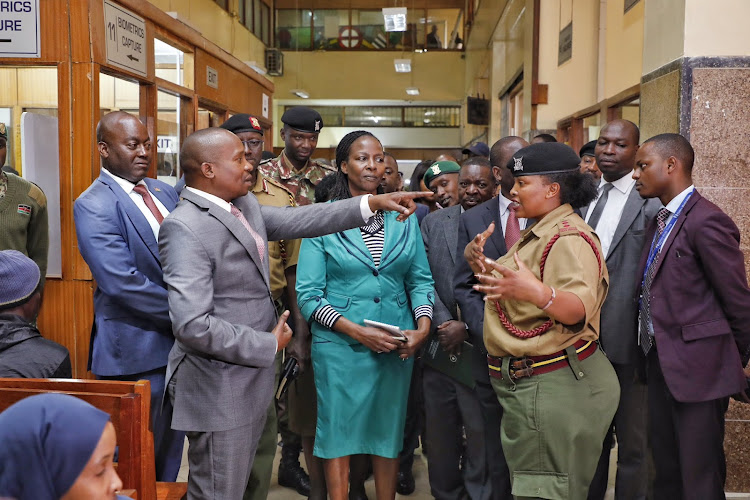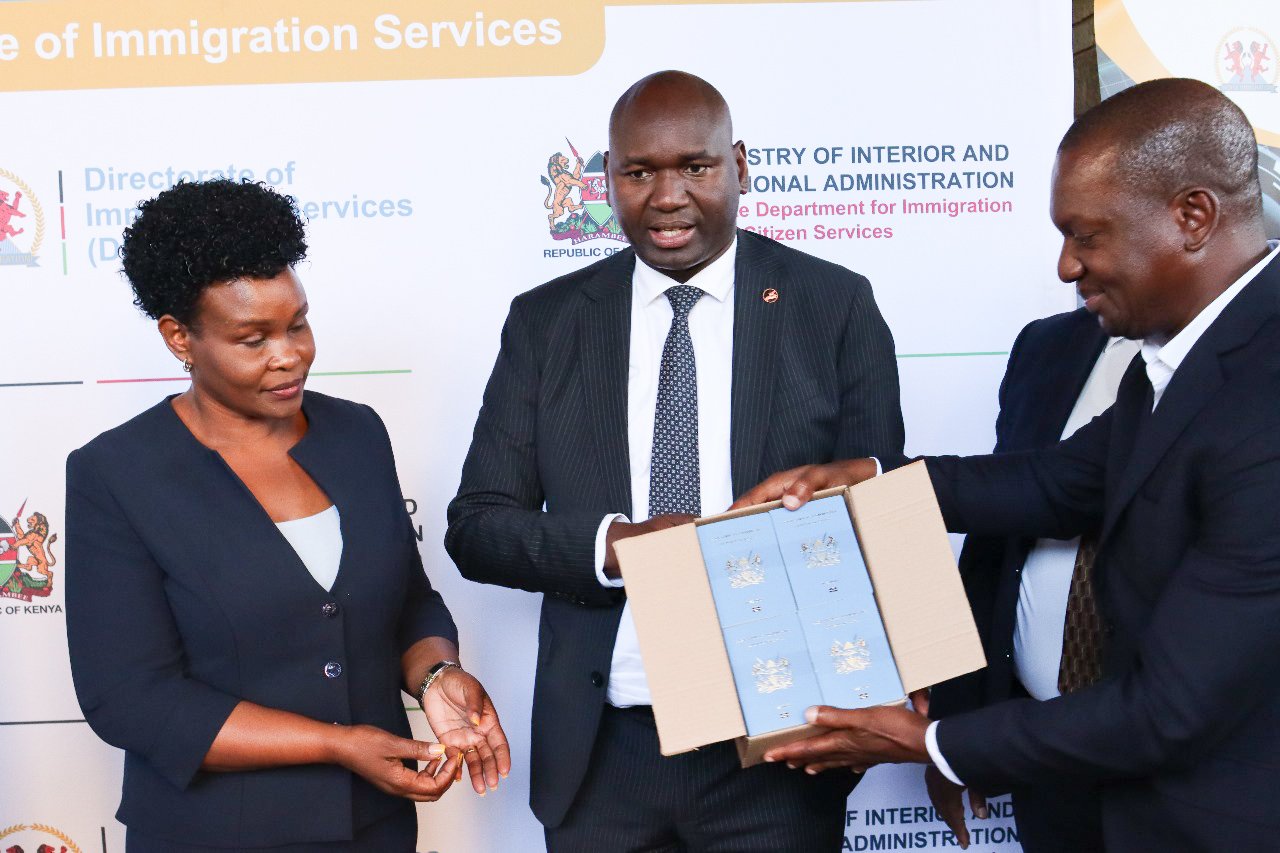NIS to import passport printers as pressure mounts on CS Kindiki

CS Kindiki emphasised that his ministry had failed to meet its promise of issuing passports within seven days of application.
The State has turned to the National Intelligence Service (NIS) to secure passport printing materials from overseas in an effort to address the mounting backlog of passport applications.
With a staggering 724,000 pending applications and daily increments, Interior Cabinet Secretary Kithure Kindiki revealed that the government had prioritised securing the materials despite facing several challenges such as global supply chain shortages.
More To Read
- 514,000 passports issued despite delays in application process - GPA
- Over 57,000 printed passports remain uncollected, Immigration PS reveals
- State clears passport backlog, opens new offices to ease access for job seekers
- Kenyans urged to pick over 65,000 passports uncollected countrywide
- Kindiki tops list of possible DP Gachagua's successors amid impeachment - TIFA poll
- Immigration officers to adopt berets as part of their new uniform
Speaking before the National Assembly Committee on Regional Integration on Thursday, March 21, 2024, the CS emphasised that NIS support was crucial in solving the prolonged crisis.
"I have assigned the NIS to support the State Department for Immigration and Registration of Citizens to get us these travel materials,” Kindiki told the committee members.
In his presentation, Kindiki highlighted the significant progress made since NIS was designated to handle the exercise, citing a reduction in tender wars and expedited procurement processes. However, he did not disclose the details of the procurement, including quantities and financial implications.
The CS also emphasised that his ministry had failed to meet its promise of issuing passports within seven days of application, attributing the delays to various factors, including increased demand due to labour export policies, global supply chain disruptions, and conflicts like the Russian invasion of Ukraine.
Revealing the scale of the challenge, he disclosed that Kenya requires three million passport booklets every 90 days to address the backlog effectively. However, suppliers can only provide half of this demand, exacerbating the situation.
On Thursday, March 21, 2024, the ministry received 112,700 passport booklets comprising 92,400 50-page (B-series) booklets and 20,300 66-page (C-Series) booklets.
 Principal Secretary of Immigration Services Julius Bitok (centre) when he received printing booklets for passports in Nairobi on March 21, 2024. (Photo: X/JuliusKBitok)
Principal Secretary of Immigration Services Julius Bitok (centre) when he received printing booklets for passports in Nairobi on March 21, 2024. (Photo: X/JuliusKBitok)
Financial constraints further complicated the crisis, but Prof. Kindiki announced a breakthrough as the National Treasury granted the Immigration Department permission to utilise internally generated funds amounting to Sh3 billion annually for operations and procurement purposes.
Meanwhile, the dependency on NIS, led by Director General Noordin Haji, is akin to a situation in 2020 when the Kenya Medical Supplies Agency (KEMSA) tasked the spies with procuring ventilators worth Sh300 million for COVID-19 patients.
That year, the procurement was marred with controversies with stakeholders raising concerns about transparency and accountability.
The National Assembly's Health Committee previously questioned KEMSA’s acquisition of COVID-19 supplies through NIS, underscoring the need for scrutiny in multi-agency collaborations.
Kindiki did not address the controversy around the partnerships but responded to the MPs and the public’s concerns regarding corruption and inefficiencies at Nyayo House, the headquarters of the Immigration Department.
Committee members, including Kipipiri MP Wanjiku Muihia, Julius Ruto of Keses, and Joseph Gitari of Kirinyaga Central, voiced grievances over persistent graft allegations and the failure to expedite passport issuance.
In response, Prof. Kindiki acknowledged the prevalence of corruption within Nyayo House, despite previous arrests and prosecutions. However, he pledged to continue with the operations to weed out corrupt officials hampering service delivery.
"Detectives are also zeroing in on more culprits in a renewed push to dismantle the complex cartel that has long frustrated the reform efforts at Nyayo House and other immigration offices across the country," said Kindiki.
The recent arrests mark a continuation of the government's efforts initiated last year to overhaul the immigration department. The public outcry over sluggish passport processing prompted the government to launch the transformation programme and begin rooting out corrupt officials from Nyayo House.
Top Stories Today












































